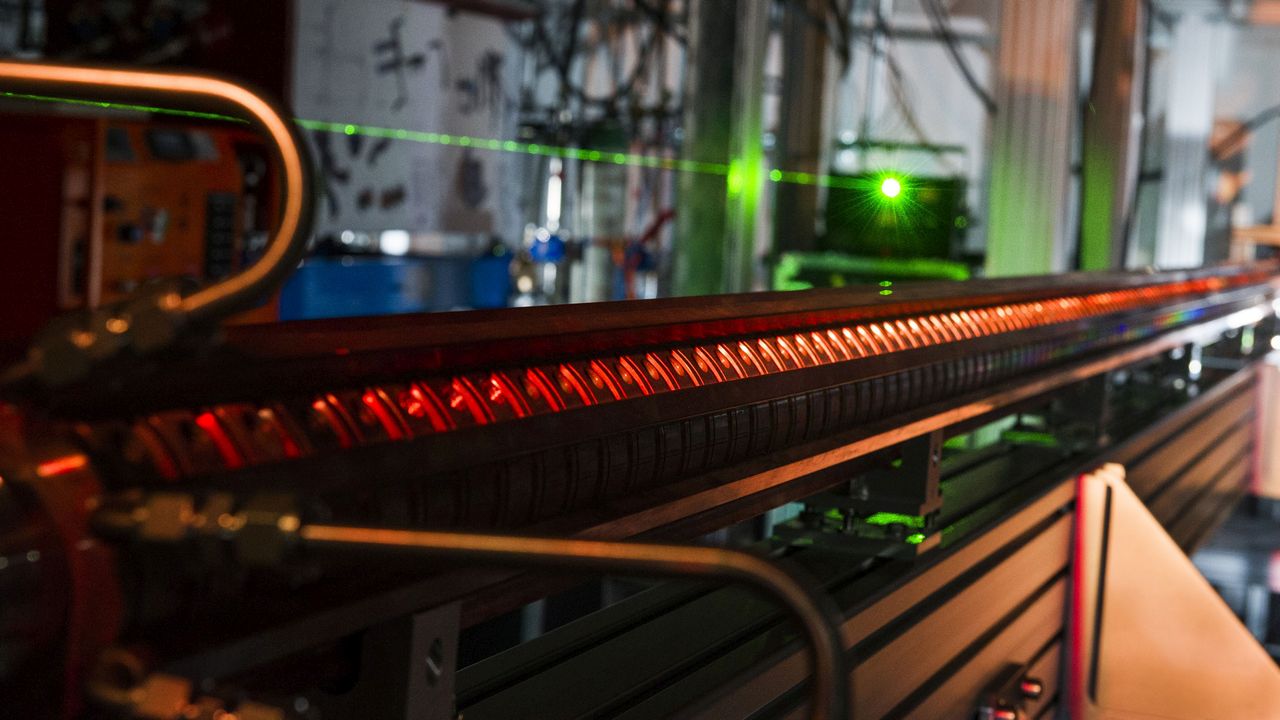Accelerators are key tools for research in fields such as physics, chemistry, biology, medicine and the materials sciences. At its new KITTEN test center, the Karlsruhe Institute of Technology (KIT) performs research on designs and components aimed at making such accelerator systems not only more powerful but also more energy-efficient and sustainable. The dedication ceremony for the test center will take place on July 21, 2022, at 3:30 p.m. at TRIANGEL Open Space on Kronenplatz square in Karlsruhe. Media representatives are invited to attend. Registration until July 20 by e-mail: presse ∂does-not-exist.kit edu.
Modern particle accelerators can speed subatomic particles such as electrons and atomic nuclei up to nearly the speed of light, enabling researchers to investigate the smallest of particles and their interactions. That makes them key research tools. “Regardless of the field – future energy supplies, climate change mitigation, the mobility transition, materials sciences or medicine – researchers need high-performance infrastructure to meet these challenges. At the same time, it’s our job and our responsibility to make the operation of these systems as energy-efficient as possible,” says Professor Holger Hanselka, President of KIT. “Now, in the KITTEN test center, we can improve the performance and sustainability of the accelerator technologies that are so vital to many disciplines.”
Aiming for Energy Efficiency at Maximum Performance
“An aim of our research is to design accelerators and their infrastructure to use energy as responsibly as possible. Until now, they have mainly been designed for maximum performance and not energy efficiency,” says Professor Anke-Susanne Müller, who heads the Institute for Beam Physics and Technology at KIT.
To optimize the energy footprint of accelerators, KIT has merged the activities of the KARA accelerator test facility and Energy Lab 2.0 in the KITTEN test center. KITTEN stands for KIT Testfeld für Energieeffizienz und Netzstabilität (KIT Test Center for Energy Efficiency and Grid Stability). “From component to system level, we want to incorporate ideas for energy efficiency and sustainability into both new and existing accelerators,” says Müller. The test center features a photovoltaic system on the roof of the accelerator building, innovative cooling systems, and AI-based real-time operational optimizations.
Platform for the Accelerator Technology of the Future
KITTEN is embedded in the Accelerator Technology Platform (ATP) at KIT, which is working to develop the accelerator technologies of the future. “The ATP’s task is to come up with new designs for the large-scale research infrastructures of the future, and to operate them. It’s a hub where academia and industry can efficiently develop relevant technologies for accelerators,” says Müller.
In close partnership with society, KIT develops solutions for urgent challenges – from climate change, energy transition and sustainable use of natural resources to artificial intelligence, sovereignty and an aging population. As The University in the Helmholtz Association, KIT unites scientific excellence from insight to application-driven research under one roof – and is thus in a unique position to drive this transformation. As a University of Excellence, KIT offers its more than 10,000 employees and 22,800 students outstanding opportunities to shape a sustainable and resilient future. KIT – Science for Impact.

